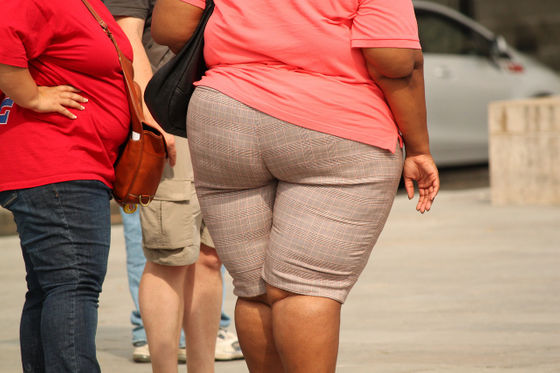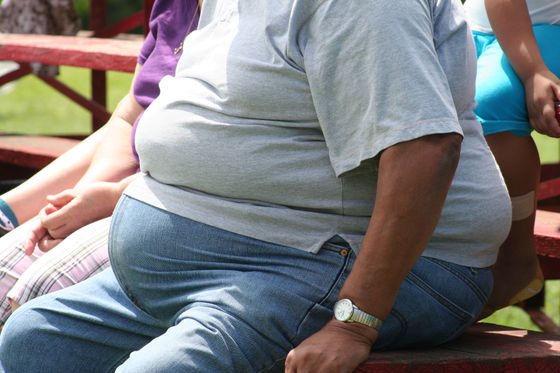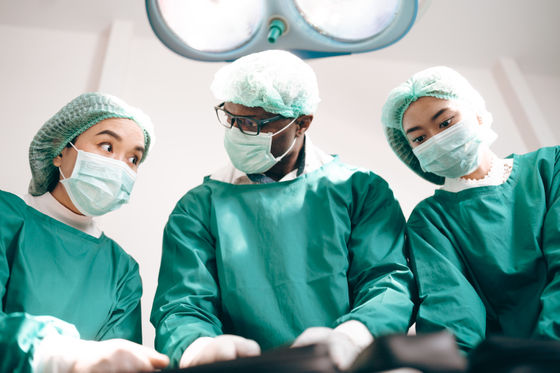Many Americans are ``overweight'' and even if they want to donate their corpses, they are refused ``no need''

One way to contribute to society after death is to
Most Americans Are Too Fat to Donate Their Bodies to Science
https://www.vice.com/en/article/vvjz3d/most-americans-are-too-fat-to-donate-their-bodies-to-science
In the United States, it is illegal to purchase cadavers for money, so when universities procure cadavers for medical research and education, they are commonly referred to as 'whole body donation programs' or 'body donations to science.' You must use the body donation system.
However, in 2017, when VICE took up this issue, overweight or obese people already accounted for two-thirds of the population in the United States. was said to have been one after another.

'Many morbidly obese people were stigmatized during their lifetime,' said Ronald Wade, director of the Health and Mental Health Division at the Maryland Board of Anatomy. At the end of the day, it's the words, 'No one wants your body,'' he commented.
Originally, human corpses are extremely valuable to universities. This is because students aspiring to be surgeons must acquire surgical skills using cadavers, and other medical school students learn the structure of the human body in anatomy lectures. Of its importance, Ernest Tallarico, associate director of education at the Indiana University School of Medicine, said, 'Body donations literally help tens of thousands, hundreds of thousands of people, because not only do some people learn from donated bodies, There are many people who can learn from his research,' he said.
But not every corpse is welcome. The specific conditions are regulated by region, so there are minor differences. will be In addition to this, the body mass index (BMI) and weight restrictions are particularly problematic in the United States.
For example, at Indiana University, there is a restriction that 'the weight does not exceed 200 pounds (about 90 kg)', but this standard is quite loose as an educational institution, and depending on the school, '180 pounds (about 81 kg)' is the upper limit. Many places do. In contrast, according to data released by the Centers for Disease Control and Prevention in 2016, the average American male weighed 195.7 pounds (about 89 kg). In other words, the average American man will be told at many colleges that he is too fat to accept a body donation.

by
Educational institutions set such standards for the compelling reason that they do not have the facilities to accommodate the corpses of people who are too large. In addition, since the bodies are carried by students and researchers within the facility, there is a risk of accidents when carrying heavy bodies. There is also the problem that there is no
On the other hand, there is also a movement to respect wishes made during life as much as possible. For example, in Maryland, body donations are handled directly by the state health department instead of by educational institutions, so body donations are generally not refused on the grounds of obesity. In addition to doing our best to meet the wishes of the deceased as much as possible, the state will bear the costs related to the disposal of the body once it is taken back even if it cannot be donated.
According to Wade of the Maryland State Board of Anatomy, there are places where cadavers that most educational institutions reject are needed. For example, the fact that many Americans are overweight means that paramedics and trauma surgeons are likely to encounter overweight patients as well, making them suitable for training in those areas.

“Patients arriving in the emergency room come in all shapes and sizes,” Wade said. In some cases, such as intubation , it is difficult to practice with emaciated corpses of elderly people.'
In accordance with the body shape of Americans, changes are coming to the response of body donations in educational settings. Some places, such as the Indiana University School of Medicine, have introduced dissecting tables on which large cadavers can be placed, and some educators find it beneficial to give medical students exposure to obese people. Louisiana State University professor Steven Haymsfield said, 'I wouldn't want to fill a room with obese bodies, but I do think that such donations can be useful to students. Nothing beats the real thing.' I don't have it,' he commented.
Related Posts:
in Note, Posted by log1l_ks







